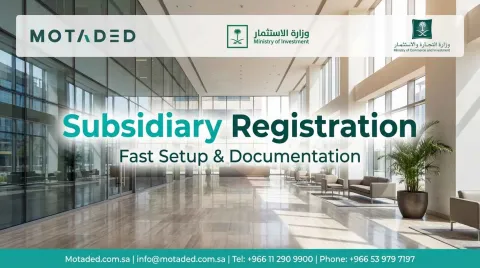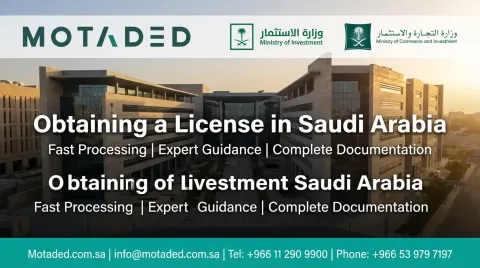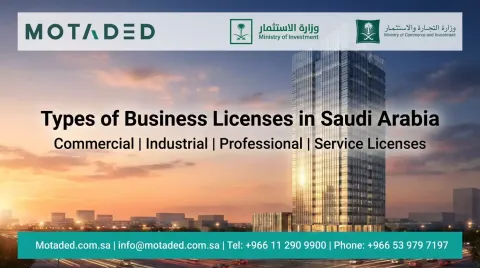Navigating NEOM: A Comprehensive Guide to Company Registration and Project Participation in Saudi Arabia's Futuristic Megacity

I. Executive Summary
NEOM, a cornerstone of Saudi Arabia's ambitious Vision 2030, represents a transformative megacity project designed to fundamentally reshape the Kingdom's economic landscape. Its core objectives include diversifying the economy away from oil dependence, attracting substantial foreign investment, and establishing a global epicenter for commerce, technology, and sustainable living.1 Envisioned as a dynamic "living laboratory," NEOM aims to foster unparalleled entrepreneurship and innovation, powered entirely by 100% renewable energy and prioritizing human well-being and environmental stewardship.1
For international businesses and investors, NEOM presents a unique array of opportunities, underpinned by a highly favorable regulatory environment. Key advantages include the allowance of 100% foreign ownership in most sectors, offering a rare degree of control for international entities in the Middle East.4 Furthermore, NEOM provides significant tax incentives, including potential exemptions from corporate tax and Value Added Tax (VAT) in specific cases, alongside relaxed minimum capital requirements, which significantly lowers barriers to entry for startups and established enterprises alike.4 The entire business setup process within NEOM has been meticulously streamlined, designed to ensure efficiency and a faster acquisition of necessary licenses and permits when compared to other regions in Saudi Arabia.4 This comprehensive approach aims to cultivate a vibrant, business-friendly ecosystem poised for rapid growth and global impact.
II. Introduction to NEOM: A Global Hub for Innovation and Sustainable Growth

Vision and Strategic Importance
NEOM, a portmanteau signifying "New Future," is a visionary project launched in 2017 by His Royal Highness Prince Mohammed bin Salman, the Crown Prince and Prime Minister of Saudi Arabia. It stands as a critical pillar of Saudi Arabia's Vision 2030, an overarching national plan to reduce the Kingdom's reliance on oil and foster a diversified, sustainable economy.1 NEOM is being developed as a special economic zone (SEZ) with a distinct legal and regulatory framework. This framework includes its own civil and tax laws, alongside an autonomous judicial system, a design intended to establish new global benchmarks for urban sustainability and economic diversification.2 The project's overarching ambition is to attract leading international companies and top global talent, thereby positioning Saudi Arabia as a global leader in sustainable and diverse 21st-century economies.2
The establishment of an independent governmental framework, complete with its own tax and labor laws and an autonomous judicial system, represents a significant departure from traditional Saudi Arabian regulatory norms.9 This distinct regulatory environment is a deliberate strategic move to cultivate a highly attractive, flexible, and predictable ecosystem for international businesses and skilled professionals. By minimizing potential bureaucratic obstacles and offering clear legal parameters, NEOM aims to enhance investor confidence and streamline operations. It is important to note that while this framework provides autonomy, NEOM explicitly operates under the full sovereignty and regulatory oversight of the Kingdom of Saudi Arabia in terms of security, defense, and broader regulatory aspects.12 This approach balances the need for innovative governance with unwavering national control, serving as a compelling incentive for foreign direct investment (FDI) that prioritizes regulatory clarity and operational efficiency.
Furthermore, NEOM's commitment to building "from the ground up" and being "free from legacy infrastructure and regulatory inefficiencies" signifies more than just an pursuit of efficiency.7 This approach allows NEOM to serve as a unique testbed for advanced technologies and sustainable practices, effectively prototyping solutions for pressing global urban and environmental challenges.10 Companies engaging with NEOM are thus not merely entering a new market; they are actively participating in the co-development of future-proof solutions that hold the potential for global replication. This offers a distinctive value proposition, extending beyond conventional market access to include a role in shaping global innovation.
Key Regions and Sectors
NEOM is not a monolithic entity but rather a collection of interconnected, distinct sub-projects, each designed with a specific purpose and unique characteristics. These include THE LINE, an ambitious 170-kilometer linear city; Oxagon, a reimagined industrial city focused on advanced manufacturing and clean industries; Trojena, a unique mountain destination offering year-round outdoor sports and adventure; and Sindalah, a luxury island destination poised to be a premier Red Sea tourism hub.1 These diverse regions are being developed to host a wide array of activities and foster vibrant communities.
The economic engine of NEOM is driven by a focus on 15+ knowledge-economy sectors. These sectors are strategically chosen not only to diversify the Saudi economy but also to serve as key drivers for attracting residents and generating high-skilled job opportunities.2 These include:
- Energy and Water: Pioneering 100% clean energy solutions, including green hydrogen production, and developing sustainable water supply systems.10
- Mobility: Creating a seamlessly connected transportation ecosystem with smart public transport solutions.10
- Health, Wellbeing, and Biotech: Building an unparalleled healthcare system focused on proactive prevention and world-class treatments.10
- Food: Addressing food security through climate-positive growing solutions and next-generation aquaculture.10
- Technology and Digital Sciences: Leading in 5G hyperconnectivity, Artificial Intelligence (AI), and advanced robotics.10
- Advanced Manufacturing: Introducing Industry 4.0 principles, green factories, and lean manufacturing practices.10
- Media and Media Production: Developing a fully integrated media hub for screen production, gaming, and digital publishing.10
- Entertainment and Culture: Redefining experiences through hyper-personalization and transformative entertainment concepts.10
- Financial Services: Innovating in financial services through inclusion, digital transformation, and green financing.14
- Tourism: Cultivating sustainable tourism that enriches society and the economy.14
- Sport: Promoting livability and economic dynamism through sport, physical wellbeing, and adventure activities.14
- Education, Research & Innovation: Establishing a new model for learning and discovery that transforms education.14
- Design and Construction: Aiming to be a global showcase for capital project execution, emphasizing efficiency and automation.14
The interconnectedness of these sectors is a fundamental design principle for NEOM, aiming to foster a true circular economy.10 For example, ENOWA, NEOM's dedicated energy and water company, plans to utilize waste products generated from energy, water, and hydrogen processes to create new, beneficial products, thereby spurring the creation of entirely new industries within the NEOM ecosystem.15 This strategic integration means that businesses entering one sector may discover inherent demand or supply chain opportunities within other NEOM sectors, fostering a symbiotic relationship that maximizes resource utilization and minimizes waste.
Progress and Scale
NEOM is a project of unprecedented scale and ambition, backed by substantial financial commitments. It commenced with an initial outlay of $500 billion from Saudi Arabia's Public Investment Fund (PIF), with additional funding sourced from local and international investors.8 In 2023 alone, NEOM successfully secured $10.6 billion in investments, demonstrating its strong appeal to global capital.19
The sheer physical dimensions of NEOM are staggering, encompassing a total planned area of 26,500 square kilometers.3 Its centerpiece, THE LINE, is designed as a linear city stretching 170 kilometers, with a height of 500 meters and a width of 200 meters.9 This innovative urban design is projected to eventually accommodate 9 million people on a remarkably compact footprint of just 34 square kilometers. To put this into perspective, achieving a similar population density with traditional urban sprawl would require an area equivalent to 1,600 square kilometers in a city like London.20
NEOM's commitment to sustainability is central to its design, with plans for the city to operate entirely on 100% renewable energy, ensuring a zero-carbon footprint. Furthermore, 95% of the land within NEOM will be preserved for nature, reflecting a deep commitment to environmental protection and regeneration.20
Significant progress has already been made across various sub-projects. The luxury island destination of Sindalah, for instance, officially opened in October 2024.9 Construction is actively underway on THE LINE, Oxagon, and Trojena, marking tangible advancements in the realization of the megacity.1 The new international airport within NEOM is anticipated to be operational by mid-2026, further enhancing connectivity and accessibility.20 As of April 2025, approximately 2,800 workers were housed at the construction site, indicating substantial on-the-ground activity.22
The economic impact of NEOM is projected to be transformative for Saudi Arabia. It is expected to contribute up to $48 billion to the Kingdom's GDP by 2030, with projections indicating a potential annual contribution of up to $100 billion by 2030, predominantly from non-oil sectors.2 This ambitious project is also anticipated to generate a significant number of employment opportunities, with up to 380,000 new jobs projected through "The Line" project alone.2
The development of NEOM demonstrates a strategic approach that balances grand ambition with pragmatic adjustments. While the project's scale is immense and considerable progress is evident (e.g., the completion of Sindalah and the projected timeline for the airport), reports have indicated strategic reviews and potential workforce adjustments.22 For instance, initial ambitious timelines for major completions (by 2020 and 2025) have been revised.9 This indicates that NEOM's leadership is prioritizing feasibility and long-term sustainability over rigid adherence to initial projections, a positive signal for long-term investors seeking stability and responsible management. A spokesperson for NEOM has affirmed that such "review and adjustment" reflects "responsible management".22
The sheer scale of NEOM, with its target population of 9 million and the creation of 380,000 new jobs 2, inherently implies massive human capital requirements. While NEOM aims for "global talent attraction" 7 and the development of "Saudi human resources" 23, reports concerning worker deaths and alleged mistreatment 9 highlight potential challenges in labor practices and human rights. This presents both a significant opportunity for businesses to engage with a vast talent pool and a critical responsibility to adhere to stringent ethical labor practices and robust human resources policies to mitigate potential reputational and legal risks.
III. Company Registration in NEOM: A Step-by-Step Guide for Foreign Investors

Streamlined Business Setup Process
NEOM offers a notably simplified business setup process compared to general procedures across Saudi Arabia, a deliberate design choice aimed at attracting international companies and investors.4 This streamlined approach is characterized by several key advantages. Foreign investors can benefit from 100% foreign ownership in most sectors, a significant departure from traditional requirements for local partnerships in many Middle Eastern markets.4 Furthermore, NEOM features notably relaxed minimum capital requirements 4 and offers substantial tax incentives, including potential exemptions from corporate tax and Value Added Tax (VAT) in certain cases.4 The administrative framework within NEOM is specifically engineered to ensure faster acquisition of necessary licenses and permits, contributing to a more efficient market entry process.4
A significant regulatory evolution is the Kingdom's shift from a "License Regime to a Registration Regime".26 This transformation includes the consolidation of multiple business activities under a single certificate, a move that directly addresses a common challenge for foreign investors: the complexity and administrative burden associated with obtaining and managing numerous licenses.26 By simplifying this process, the Ministry of Investment (MISA), and by extension, NEOM, is actively reducing friction for market entry, thereby enhancing Saudi Arabia's competitiveness as an investment destination. This also carries implications for cost efficiencies, as businesses may now be required to pay an annual fee for one consolidated certificate rather than separate fees for multiple licenses.26
Phase 1: Obtaining the MISA Investment License
The initial and most crucial step for any foreign investor or company intending to establish a business presence in Saudi Arabia, including within NEOM, is to obtain a Ministry of Investment of Saudi Arabia (MISA) license.27 This license is a legal prerequisite that grants the fundamental right to operate and, notably, permits 100% foreign ownership in a wide array of sectors.29
The application process for the MISA license has been significantly streamlined, with MISA actively promoting fast and flexible licensing procedures.30 The process typically begins with the selection of an appropriate license type, which is determined by the specific nature of the business activity intended.32 Key documentation required includes a commercial registration certificate, Articles of Association, and audited financial statements or reports from the applicant's home country. All these documents must be duly attested by the Saudi Embassy or an Apostille.23 Additionally, a comprehensive business plan detailing the proposed services, target market, and financial projections is a mandatory submission.29 It is worth noting that holders of the Saudi Premium Residency permit are exempt from the requirement to submit certain financial and commercial registration documents, further easing the process for this category of investors.23
In terms of financial implications and processing times, the estimated processing time for an Investment Registration is approximately 10 working days.23 A MISA license for a foreign branch typically costs around SAR 12,000 per year (approximately $3,200 USD).34 For broader investor services provided through MISA's investor relations centers, subscription fees are SAR 10,000 for the first year, increasing to SAR 60,000 annually thereafter.35 It is critical that payment for these fees is made within 15 business days of notification, as failure to do so may result in the voiding of the registration.23
MISA functions not merely as a licensing authority but as a central facilitator for foreign investment within the Kingdom. The Ministry offers a suite of value-added services, including the Strategic Investor Program and the Miza Program.23 These programs extend beyond basic regulatory functions, providing benefits such as advisory support on legislation, consultation on visa and Saudization requirements, assistance with talent acquisition, and crucial networking opportunities.23 This demonstrates a proactive governmental approach aimed not only at attracting but also at actively supporting and retaining high-value foreign investors. The tiered fee structure for MISA services, with a lower initial fee and a higher subsequent annual subscription 35, suggests a premium is placed on ongoing support and deeper integration of investors into the Saudi investment ecosystem.
Phase 2: Company Formation and Commercial Registration (CR)
Following the successful acquisition of the MISA investment license, the subsequent critical phase involves formal company formation and obtaining Commercial Registration (CR). Foreign investors have the flexibility to choose from various legal structures to establish their presence in NEOM. Popular options include a Limited Liability Company (LLC), a Limited Liability One-Person Company, a Joint Stock Company (JSC), a Foreign Company Branch, or a Solidarity Professional Company.29 Among these, the LLC structure is particularly favored by both local entrepreneurs and foreign investors due to its inherent flexibility and the limited liability protection it offers to its partners.34
The process continues with the Ministry of Commerce (MoC).29 This involves several key steps: reserving a unique trade name for the company, drafting and formally issuing the company's Articles of Association, and finally, obtaining the Commercial Registration (CR).29 The CR is a mandatory document, legally required for any business to commence and operate within the Kingdom.40
Fees associated with Commercial Registration vary based on the type and size of the business. Initial CR fees generally range from SAR 200 to SAR 5,000 per year.40 Specifically, for an LLC, the fee is typically SAR 1,200, while for a JSC, it is SAR 1,800.35 Additional publication fees for the Articles of Association are SAR 500 for LLCs and SAR 1,000 for JSCs.35 It is important to note that CR renewal is an annual requirement, with fees generally similar to the initial registration.40 To encourage entrepreneurial activity, small and medium enterprises (SMEs) benefit from an exemption from CR fees for their first three years of operation, followed by reduced fees in subsequent years (e.g., SAR 500 for entrepreneurs and SAR 200 for smaller businesses with capital less than SAR 375,000 and fewer than five employees).40
The Kingdom's efforts toward the digitization and simplification of business registration are evident in recent reforms. The abolition of subsidiary registers and the establishment of a single commercial register valid nationwide are pivotal changes.42 This significantly reduces administrative complexity and enhances operational flexibility for businesses aiming to scale across Saudi Arabia, including within the NEOM region. Operating under a single, national CR streamlines compliance and alleviates the burden of managing multiple registrations, directly supporting Vision 2030's overarching goal of fostering a business-friendly ecosystem.42 The notable increase in commercial registrations—a 48% year-on-year surge in Q1 2025 42—directly correlates with these streamlining efforts, demonstrating their effectiveness in stimulating entrepreneurial activity.
Phase 3: Securing Sector-Specific Permits and Licenses
Beyond the foundational MISA license and Commercial Registration, businesses operating in NEOM are typically required to obtain a range of industry-specific permits and licenses, depending on their chosen activity.
- Municipality (Baladiya) License: This license is mandatory for any business that operates from a physical office, shop, or establishment, such as restaurants or clinics. Issued by the local municipality, it confirms that the business location complies with local safety, health, and zoning regulations.43 Annual fees for a Baladiya license typically range from SAR 1,000 to SAR 5,000, in addition to inspection fees.40 The application process generally involves submitting an online application via the Balady portal, uploading required documents, paying the licensing fee, and undergoing a municipality inspection.46
- Industrial License: Required for companies engaged in manufacturing and industrial production activities.27 The Ministry of Industry and Mineral Resources issues these licenses, distinguishing between preliminary licenses for planning stages and final licenses for full operational capacity.48 Key requirements include a detailed feasibility study, engineering blueprints of the factory, and environmental approval.47 While fees are generally not associated with the issuance of the license itself 52, overall costs for manufacturing licenses can range from SAR 10,000 to SAR 50,000.40
- Professional License (with Saudi Partner): This license is designated for professionals such as consultants, lawyers, and accountants, or other service-based providers. It mandates the involvement of a Saudi partner with the same specialization, who must hold at least 25% ownership of the company.32
- Entrepreneur License: Tailored for startups and entrepreneurs with innovative business concepts, this license requires a feasibility study, a financial plan, and approval from Monsha'at (Small and Medium Enterprises General Authority).32
- Media License: Necessary for businesses involved in broadcasting, film production, and media content distribution.27 For social media influencers, a specific license from the General Commission for Audiovisual Media (GCAM) costs SAR 15,000 (approximately $4,000 USD) for a three-year period.53 General media licenses may involve an initial application fee of SAR 2,000, with late renewal penalties of SAR 100 per month.55 A media measurement license costs SAR 30,000.57
- Agricultural License: Foreign investors interested in agriculture, livestock, or fisheries require this license.27 Key requirements include a detailed business plan, an environmental impact assessment, and approval from the Ministry of Environment, Water and Agriculture (MEWA).58 Fees for agricultural consulting services, for instance, can be around SAR 3,110.60
- Transport License: This license covers various transport activities, including land transport, freight, and logistics services.27 It necessitates a comprehensive business plan and approval from the Ministry of Transport and Logistic Services.62
- Mining License: For investment opportunities in mining, including gold, phosphate, and bauxite.27 Requirements include geological surveys, technical studies, compliance with environmental regulations, and approval from the Ministry of Industry and Mineral Resources.64 Application fees are SAR 10,000, with issuance and renewal fees of SAR 20,000.64
While NEOM aims for streamlined processes, the necessity for a diverse array of sector-specific licenses indicates that a "one-size-fits-all" approach is not fully applicable. Each sector, whether agriculture, media, or industrial, falls under the purview of its respective governing ministry (e.g., MEWA, GCAM, Ministry of Industry and Mineral Resources, Ministry of Transport and Logistic Services). These ministries maintain their own unique requirements, fee structures, and compliance standards.48 This means that while the initial MISA license and Commercial Registration are foundational, deep domain-specific regulatory knowledge remains critical for successful operationalization within NEOM. This complexity underscores the value of engaging specialized consultation services to navigate the intricate landscape of sector-specific regulations.
Phase 4: Tax and Regulatory Compliance
Compliance with Saudi Arabia's tax and regulatory framework is a critical aspect of establishing and operating a business in NEOM. All businesses must register with the Zakat, Tax and Customs Authority (ZATCA) for tax purposes.23
Saudi Arabia applies different tax regimes based on ownership structure:
- Corporate Income Tax: Foreign-owned companies (those with non-GCC ownership) are subject to a 20% corporate income tax on their net profits.34
- Zakat: In contrast, companies that are fully Saudi- or GCC-owned are subject to Zakat, a religious wealth tax levied at 2.5% on their net worth.34
- Value Added Tax (VAT): A 15% VAT is applied to most goods and services. Registration for VAT becomes mandatory once a company's annual revenue exceeds SAR 375,000 (approximately $100,000 USD).34
- Withholding Tax: A withholding tax, ranging from 5% to 20%, is applied to cross-border payments such as royalties or service contracts.34
Despite these national tax obligations, NEOM offers specific tax incentives. Businesses established within NEOM may qualify for special tax breaks and exemptions, including potential exemptions from corporate tax and VAT in certain cases.4
The distinction between corporate income tax for foreign entities and Zakat for local/GCC entities, coupled with NEOM's specific tax exemptions, creates a complex but potentially advantageous tax landscape.34 This necessitates careful financial planning and potentially strategic structuring of investments to maximize benefits. For example, understanding the threshold for mandatory VAT registration (SAR 375,000 annual revenue) 34 and the application of withholding tax is crucial for accurate financial projections and ongoing compliance. The "relaxed minimum capital requirements" in NEOM 4 further enhance financial flexibility, particularly for startups, by reducing initial capital outlay.
Phase 5: Essential Operational Setup
Beyond legal registration and tax compliance, several operational setup elements are essential for a business to function effectively in NEOM.
- Corporate Bank Account: Opening a commercial bank account in Saudi Arabia is fundamental for managing all financial transactions. This typically requires a valid Commercial Registration (CR), an investment license (if foreign-owned), and a registered legal address within Saudi Arabia. Additionally, at least one company representative usually needs to hold a valid Saudi residency permit (Iqama).23 The process for opening a bank account for foreign companies is generally efficient, taking approximately 3 to 4 business days.32
- Office Space: A registered office address is a general requirement for business registration and licensing in Saudi Arabia.34 While virtual office options may be available in some free zones or incubators 34, a physical office is often mandatory for licensing purposes.25
- Human Resources and Labor Compliance:
- Saudization (Nitaqat Program): Companies must adhere to Saudization quotas, a national program that classifies firms based on their employment of Saudi nationals.71 Minimum wages for Saudi employees (currently around SAR 4,000 per month) are set to count towards these quotas.35 Non-compliance with Saudization rates can result in substantial fines, ranging from SAR 5,000 to SAR 20,000 per employee, depending on the company's size and the extent of the violation.35
- General Organization for Social Insurance (GOSI): Mandatory registration with GOSI is required for all companies operating in Saudi Arabia.23 Employers contribute to GOSI, typically around 22% of the employee's salary, split between employer and employee contributions.34
- Work Visas: Foreign nationals intending to conduct business activities in Saudi Arabia require appropriate visas. Options include the Investor Visa, which allows for full ownership of a local enterprise and real estate in designated areas, along with two residency options.29 For short-term projects, a Temporary Work Visa is available, valid for up to 180 days, with an application fee of SAR 1,000.71 Visa applications are primarily processed through digital platforms such as Qiwa for labor approvals and Muqeem for residency and visa management.71
- Wage Protection System (WPS): Employers are mandated to ensure that all employee salaries are transferred through banks authorized by the Saudi Central Bank (SAMA). Delays or inconsistencies in payments can lead to penalties.71
The reliance on digital platforms like Qiwa and Muqeem for human resources, labor approvals, and visa management signifies a substantial digital transformation within the Saudi Arabian administrative landscape.71 This centralization and streamlining of processes can potentially reduce manual paperwork and enhance transparency. However, it also necessitates that businesses adapt to these digital platforms and ensure their internal HR systems are compatible or integrated, introducing a new dimension of operational compliance. The implementation of a mandatory skill-based classification system for expatriate work permits 72 further indicates a strategic effort to align foreign talent with national development goals and ensure a skilled workforce.
The Saudization requirements and other labor regulations 35 are not merely compliance hurdles but reflect Saudi Arabia's broader Vision 2030 objectives of job creation for its citizens and comprehensive human capital development. For businesses, this means that strategic workforce planning must balance the acquisition of global talent with the achievement of local employment targets. Success in NEOM will likely depend on a company's ability to integrate these social objectives into their core business model, potentially through dedicated training programs for Saudi nationals or strategic local partnerships.
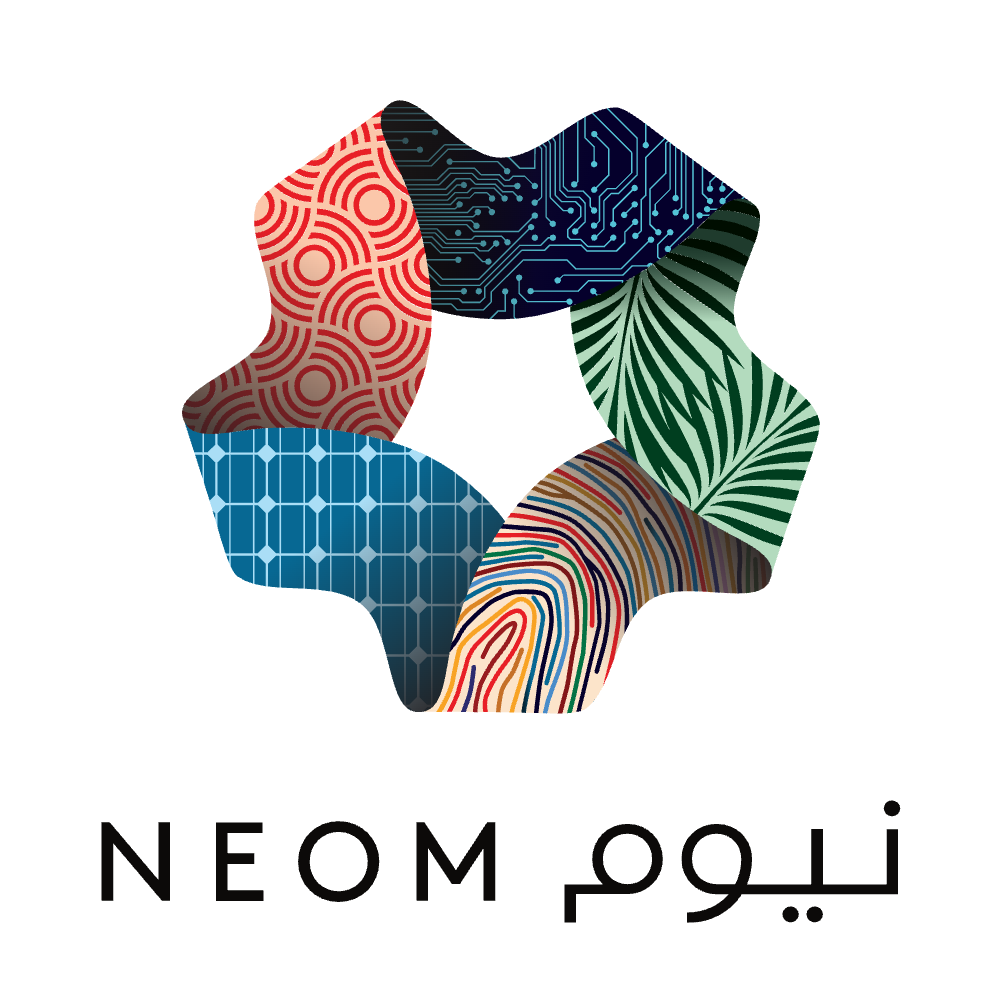
Table: Summary of Key Business Licenses & Fees in Saudi Arabia (Applicable to NEOM)
This table provides a consolidated overview of estimated fees and key requirements for various business licenses in Saudi Arabia, which are applicable to operations within NEOM. It serves as a practical reference for businesses assessing the regulatory and financial landscape for different activities.
License Type
Issuing Authority
Key Requirements
Estimated Fees (Initial/Annual)
Estimated Processing Time
MISA Investment License
Ministry of Investment (MISA)
Commercial Reg. (home country), Articles of Association, Financial Statements (attested); Business Plan. Premium Residency holders exempt from some docs.
SAR 12,000 (Foreign Branch) / SAR 10,000 (1st year investor services), then SAR 60,000 annually
10 working days
Commercial Registration (CR)
Ministry of Commerce (MoC)
MISA License, Trade Name Reservation, Articles of Association.
SAR 200 - 5,000 (General); SAR 1,200 (LLC); SAR 1,800 (JSC) + Publication Fees (SAR 500-1,000)
2-4 weeks (Service License) / 45 days (Full process with Motaded)
Municipality (Baladiya) License
Ministry of Municipal and Rural Affairs and Housing (Baladiya Office)
Commercial Reg., National Address, Tenancy Contract, Building Completion Cert., Electricity Proof, Civil Defense Approval (if needed).
SAR 1,000 - 5,000 (Annual); Inspection fees: SAR 300-800; Civil Defense: SAR 500-2,000
1-10 Days (Balady Portal)
Industrial License
Ministry of Industry and Mineral Resources (MIM)
Feasibility Study, Engineering Blueprints, Environmental Approval.
SAR 10,000 - 50,000 (Overall Cost); No direct issuance fee from MIM.
5-10 working days (after requirements met) / 20-30 working days (Overall)
Professional License
MISA (with Ministry approval)
Saudi partner (min 25% ownership) with same specialization; relevant academic/professional qualifications.
No minimum capital specified 40
Varies
Entrepreneur License
Monsha'at (SME General Authority)
Innovative business concept, feasibility study, financial plan.
Fees determined by Ministry upon approval 79
Varies
Media License
General Commission for Audiovisual Media (GCAM)
Content/distribution strategy, compliance with cultural/ethical standards.
SAR 2,000 (Initial Application); SAR 100/month (Late Renewal); SAR 15,000 (Influencer, 3 years); SAR 30,000 (Media Measurement)
Varies (e.g., 30 days for Media Measurement)
Agricultural License
Ministry of Environment, Water and Agriculture (MEWA)
Detailed business plan, environmental impact assessment.
SAR 3,110 (Agricultural Consulting Service)
Several weeks
Transport License
Ministry of Transport and Logistic Services (MoTLS)
Comprehensive business plan, compliance with safety/regulatory standards.
Varies by service; License issuance fee (after approval)
2 Days (Service License Issuance)
Mining License
Ministry of Industry and Mineral Resources (MIM)
Geological surveys, technical studies, environmental compliance.
SAR 10,000 (Application); SAR 20,000 (Issuance); SAR 20,000 (Renewal)
Several months to a year+
IV. Participating in NEOM Projects: Tenders, Partnerships, and Investment Avenues
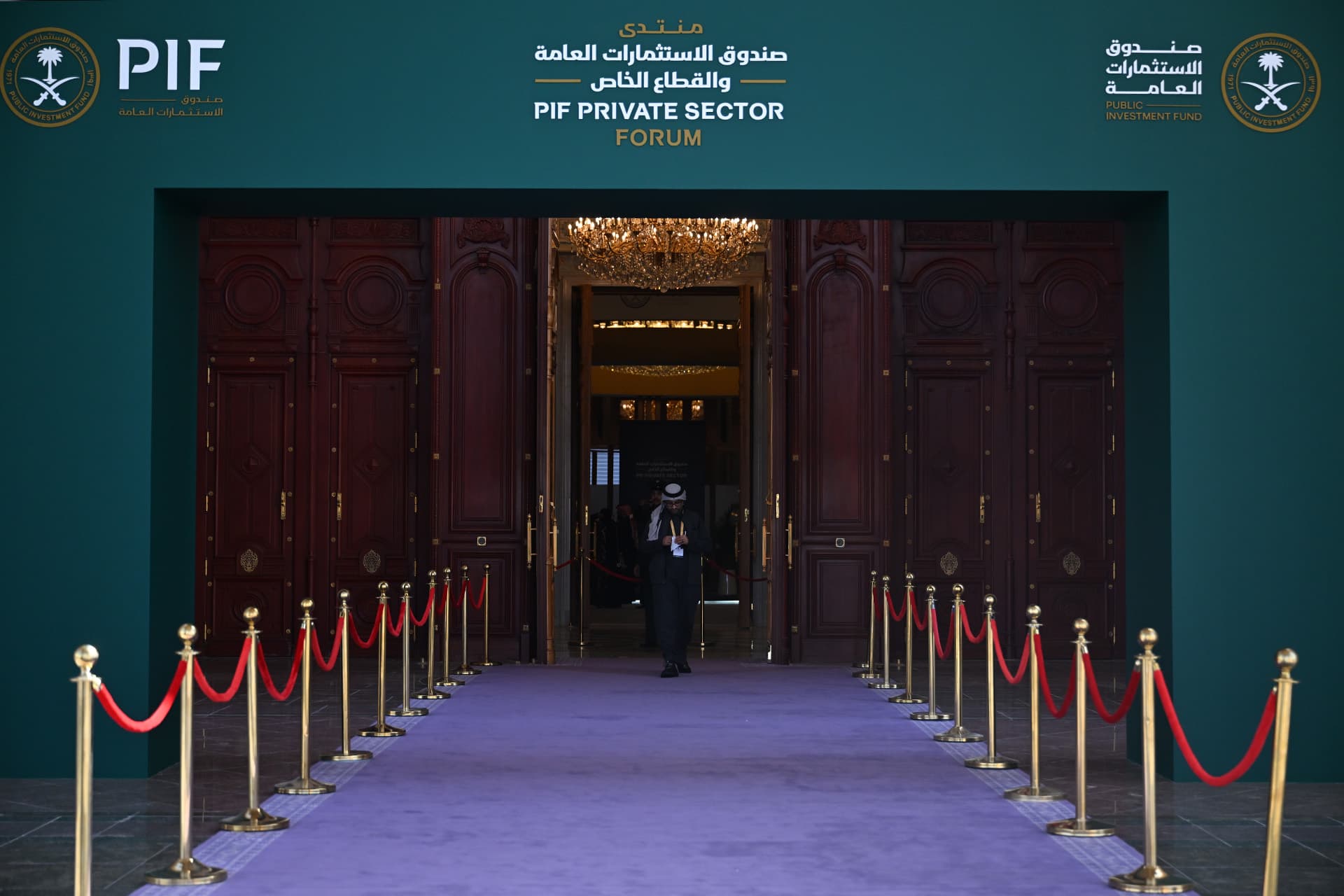
Becoming a Registered NEOM Supplier
NEOM actively seeks partnerships with leading companies across a diverse range of industries, recognizing that a robust supplier network is crucial for its ambitious development.73 The process for becoming a registered supplier is designed to be accessible and efficient, with registration being free of charge. NEOM explicitly states that it will never charge a fee for registration or offer bid bonds.73 The entire self-registration process can be completed in approximately 45 minutes.73
The supplier registration process involves two main steps:
- Self-Registration: Companies initiate this by clicking the 'register' button on the NEOM supplier portal. This involves downloading a 'supplier authorized letter,' completing company details, and uploading supporting documents. These documents can include a power of attorney, a board resolution, a copy of the commercial registration, or any other relevant document that proves the authority to sign on behalf of the company. Applicants must also accept NEOM's Terms & Conditions before submitting their 'initial supplier request' application for review.73
- Supplier Questionnaire: Upon approval of the initial application, companies receive an email invitation to complete a more detailed 'supplier questionnaire'.73 This questionnaire is vital for NEOM to gain a comprehensive understanding of the business's capabilities, categorizing its offerings effectively to match with future project needs.73
Registered suppliers gain several significant benefits. They receive visibility of planned NEOM tenders up to two years in advance, allowing for strategic planning and preparation. They can target opportunities based on specific categories of goods and services they offer and gain access to a wide array of multi-sector projects. The platform itself is designed for convenient supplier interactions.73 While registration does not automatically guarantee tender invites, NEOM's procurement team actively utilizes this comprehensive database to invite suitable suppliers to participate in relevant tender activities.73
NEOM's emphasis on supplier registration and the detailed supplier questionnaire indicates a proactive approach to cultivating a robust and pre-qualified supply chain.73 By providing visibility of planned tenders up to two years in advance 73, NEOM enables potential suppliers to better prepare, strategically invest, and align their capabilities with the megaproject's future requirements. This strategy fosters long-term strategic alliances rather than merely transactional relationships, encouraging suppliers to demonstrate commitment through early engagement and alignment with NEOM's vision.
Engaging in Government Tenders via Etimad Platform
For foreign companies seeking to participate in broader government tenders across Saudi Arabia, including those potentially related to NEOM's public sector components, the primary procurement channel is the Etimad platform. This centralized government tendering portal is managed by the Ministry of Finance.76
To access the Etimad platform and participate in tenders, foreign companies must meet specific requirements: they must either establish a local entity in Saudi Arabia (such as an LLC, a branch office, or a joint venture) or partner with a Saudi-licensed company that can act as the lead bidder.76
The Etimad platform centralizes all tender announcements, bidding processes, payments, and contract awards. It requires a Saudi-registered entity with a valid Commercial Registration (CR), ZATCA (Zakat, Tax and Customs Authority) registration for tax compliance, and a local bank account for onboarding.76 A notable aspect of the Etimad platform is that it is currently available only in Arabic, which can present a layer of complexity for non-Arabic speaking entities.76
The requirement for a Saudi-registered entity or a local partner to access the Etimad platform underscores the Kingdom's commitment to localizing economic activity and fostering domestic partnerships.76 This policy implies that foreign companies cannot simply bid on large government projects from abroad; they must establish a formal presence within Saudi Arabia. This approach not only ensures compliance with local regulations but also facilitates knowledge transfer, contributes to job creation for Saudi nationals, and promotes deeper integration into the local economy, all of which are fundamental objectives of Saudi Vision 2030.
Strategic Investment and Partnerships through NEOM Investment Entities
NEOM offers diverse investment opportunities and actively seeks strategic partnerships through two primary entities:
- NEOM Investment Office (NIO): This is the official body responsible for attracting capital to develop NEOM's various regions and identifying business opportunities for both private and public sector participation.7 The NIO aims to craft unique deal structures and foster transformative partnerships that will shape NEOM's future landscape. In 2023, the NIO successfully secured $10.6 billion in investments, including a significant $10 billion joint venture with DSV, which stands as the largest non-energy foreign direct investment in Saudi Arabia.19 This highlights NEOM's pivotal role in supporting the Kingdom's economic diversification efforts.
- NEOM Investment Fund (NIF): As the strategic investment arm of NEOM, the NIF is dedicated to backing game-changing ideas and technologies across NEOM's 15 economic sectors.1 The NIF's strategy is built upon six core pillars:
- Joint Ventures: Investing alongside global partners to establish joint ventures within NEOM, with a focus on creating high-skilled jobs.7
- Venture Capital: Engaging in venture investing in global private companies that possess technologies deemed crucial for achieving NEOM's sectoral ambitions.7
- Investment Attraction: Actively drawing in investors to partner in large-scale infrastructure and sustainability projects within NEOM.7
- Portfolio Management: Overseeing and managing NEOM's sector companies to ensure their growth aligns with both the overarching vision and strategic objectives.7
- Global Champions: Fostering the development of new businesses with the scale and ambition to become global leaders in their respective fields.7
- Flagships: Creating iconic, transformative experiences that support the vision of specific sectors within NEOM.7
NEOM provides a comprehensive range of investment structures for private sector participation, including Joint Ventures (JV), Build-Operate-Transfer (BOT) models, and Public-Private Partnerships (PPP).7
The clear distinction between the NEOM Investment Office (NIO), which focuses on attracting capital for regions, and the NEOM Investment Fund (NIF), which invests in sectors, illustrates a sophisticated, multi-faceted investment attraction strategy.7 This tailored approach allows investors to align their interests either geographically (e.g., investing in the infrastructure development of THE LINE) or technologically/industrially (e.g., investing in biotech solutions applicable across NEOM). This strategic segmentation enables NEOM to better match its diverse development needs with specialized investor profiles, thereby maximizing capital inflow and fostering more effective strategic partnerships.
Furthermore, the NIF's pronounced focus on "game-changing ideas," "strategic technologies," and "frontier technology and intellectual property" 7 positions NEOM as a burgeoning global innovation ecosystem. This emphasis makes NEOM an ideal environment for research and development (R&D) and technological prototyping. Companies with cutting-edge technologies, particularly in areas such as artificial intelligence, sustainable energy, and advanced manufacturing, will find NEOM to be a prime location for piloting, scaling, and ultimately commercializing their innovations. The NIF's investments in companies like MemryX (Edge AI), Pony.ai (autonomous technology), and Volocopter (electric urban air mobility) 14 underscore NEOM's commitment to becoming a leader in global technology.
V. Key Statistics and Economic Impact
NEOM Project Scale and Progress Metrics
NEOM is a mega-project of immense proportions, backed by significant financial commitments and ambitious development targets. Its initial funding includes an outlay of $500 billion from Saudi Arabia's Public Investment Fund (PIF).8 In 2023, NEOM successfully secured an additional $10.6 billion in investments from various local, regional, and international companies.19
Geographically, NEOM encompasses a total planned area of 26,500 square kilometers.3 The centerpiece of the project, THE LINE, is designed to stretch 170 kilometers in length, stand 500 meters high, and be 200 meters wide.9 This innovative linear city is projected to accommodate a population of 9 million people, with an initial goal of housing close to 1 million residents by 2030, and reaching its full capacity of nearly 9 million by 2045.9
Sustainability is a core tenet of NEOM's design. The city is planned to operate entirely on 100% renewable energy, ensuring a zero-carbon footprint. Furthermore, 95% of the land within NEOM will be preserved for nature, reflecting a deep commitment to environmental conservation.20
Tangible progress has been made across various components of NEOM. The luxury island destination of Sindalah officially opened in October 2024.9 The new international airport within NEOM is anticipated to be operational by mid-2026, significantly enhancing connectivity.20 As of April 2025, approximately 2,800 workers were housed at the construction site, indicating ongoing development activities.22
The economic contribution of NEOM is expected to be substantial. It is projected to contribute up to $48 billion to Saudi Arabia's GDP by 2030, with a potential annual contribution reaching $100 billion by 2030, primarily driven by non-oil sectors.2 This ambitious project is also set to create a significant number of new employment opportunities, with projections indicating up to 380,000 new jobs through "The Line" project alone.2
The ambition to build a city for 9 million people on a mere 34 square kilometer footprint, achieving what would require 1,600 square kilometers in London, highlights an unprecedented urban development model.20 This comparison quantifies the efficiency and innovative approach of vertical urbanism. The aggressive timeline of reaching 1 million residents by 2030 for a city built from scratch 20 suggests immense investment in advanced construction techniques and modular assembly.21 However, this rapid pace also introduces challenges, as evidenced by past delays and workforce concerns.9 These adjustments signal a dynamic and adaptable management approach, prioritizing long-term feasibility.
Growth in Saudi Arabia's Business Environment
The broader Saudi Arabian business environment is experiencing significant dynamism, driven by Vision 2030 reforms.
- Commercial Registrations: Saudi Arabia witnessed a robust 48% year-on-year increase in new commercial registrations (CRs) during Q1 2025, with a total of 154,638 new CRs issued.42 In Q4 2024, the Ministry of Commerce issued 160,540 CRs, marking a 67% rise from the previous year's period.77 A notable social and economic indicator is the high percentage of women-owned businesses, accounting for 45% of new CRs in Q1 2025 41 and 46% in Q4 2024.77 Geographically, 71% of Q1 2025 CRs were concentrated in the major regions of Riyadh, Makkah, and the Eastern Province 41, with Riyadh alone accounting for 33% of existing registers.77
- High-Growth Sectors: Specific sectors are demonstrating exceptional growth in business registrations:
- E-commerce registrations increased by 6% year-on-year in Q1 2025, with 41,322 permits issued.42
- Cloud computing registrations saw an impressive 33% year-on-year increase in Q1 2025, totaling 3,278 permits.42
- The Virtual and Augmented Reality (VR/AR) sector experienced a significant 39% year-on-year rise in Q1 2025, with 8,218 permits issued.42
- Foreign Direct Investment (FDI):
- Net FDI inflows reached SAR 22.2 billion (approximately $5.9 billion USD) in Q1 2025, representing a substantial 44% increase compared to the same quarter in the previous year.39
- In Q3 2024, net FDI inflows amounted to SAR 16.0 billion (approximately $4.2 billion USD), showing a 37% growth compared to Q2 2024.39 However, this figure also represented a 24% decrease compared to Q3 2023.79
- Inward FDI flows into the Kingdom's economy reached around SAR 24.0 billion (approximately $6.4 billion USD) in Q1 2025, a 24% increase from Q1 2024.78
- Overall, Saudi Arabia's FDI for 2023 was $22.80 billion USD, which marked a 14.63% decline from 2022.80
The significant surge in commercial registrations (48% in Q1 2025 and 67% in Q4 2024) is a direct consequence of the streamlined regulations and the business-friendly ecosystem actively fostered by Vision 2030 reforms.42 This indicates that the government's efforts to reduce bureaucratic hurdles, such as the abolition of subsidiary registers and the nationwide validity of a single commercial register 42, are effectively translating into increased entrepreneurial activity and formal business establishment. The high percentage of women-owned businesses (45-46%) is a particularly noteworthy social and economic indicator, reflecting increased female participation in the economy.41
The pronounced growth in e-commerce, cloud computing, and VR/AR registrations 42 directly aligns with NEOM's strategic focus on technology and digital sciences.10 This trend suggests a broader national drive towards digital transformation, which creates a fertile ground and a growing talent pool that NEOM can readily leverage. For businesses, this indicates strong market demand and robust government support for digital-first ventures, making these sectors particularly attractive for investment and participation within NEOM.
While Q1 2025 saw a strong year-on-year increase in net FDI inflows (44% increase) 78, the decline in 2023 (14.63% from 2022) 80 and the Q3 2024 decrease compared to Q3 2023 79 suggest that FDI is responsive to both global economic conditions and specific project cycles within Saudi Arabia. This implies that while the overall trend is positive due to Vision 2030, investors should consider quarterly fluctuations. NEOM's significant investment figures (e.g., $10.6 billion in 2023) 19 are crucial in stabilizing and boosting these national FDI numbers, highlighting its importance as a magnet for foreign capital.
Table: Saudi Business Registration & FDI Trends (2024-2025)
This table provides key statistical data reflecting the recent dynamism and growth within Saudi Arabia's business environment and foreign direct investment landscape.
Metric
Data Point
Period
Source
New Commercial Registrations
154,638
Q1 2025
Ministry of Commerce 42
YoY Increase in New CRs
48%
Q1 2025
Ministry of Commerce 42
New Commercial Registrations
160,540
Q4 2024
Ministry of Commerce 77
YoY Increase in New CRs
67%
Q4 2024
Ministry of Commerce 77
Women-Owned Businesses (New CRs)
45%
Q1 2025
Ministry of Commerce 41
Women-Owned Businesses (Total CRs)
46%
Q4 2024
Ministry of Commerce 77
CR Concentration (Riyadh, Makkah, Eastern Province)
71%
Q1 2025
Ministry of Commerce 41
E-commerce Registrations
41,322 (6% YoY increase)
Q1 2025
Ministry of Commerce 42
Cloud Computing Registrations
3,278 (33% YoY increase)
Q1 2025
Ministry of Commerce 42
VR/AR Registrations
8,218 (39% YoY increase)
Q1 2025
Ministry of Commerce 42
Net FDI Inflows
SAR 22.2 billion (~$5.9B USD)
Q1 2025
GASTAT 39
YoY Increase in Net FDI Inflows
44%
Q1 2025 vs Q1 2024
GASTAT 78
Net FDI Inflows
SAR 16.0 billion (~$4.2B USD)
Q3 2024
GASTAT 39
QoQ Growth in Net FDI Inflows
37%
Q3 2024 vs Q2 2024
GASTAT 79
YoY Decrease in Net FDI Inflows
24%
Q3 2024 vs Q3 2023
GASTAT 79
Total FDI
$22.80 billion USD
2023
Macrotrends 80
YoY Decline in Total FDI
14.63%
2023 vs 2022
Macrotrends 80
VI. Conclusion and Strategic Recommendations
NEOM represents a bold and ambitious leap towards a diversified, sustainable, and innovation-driven economy, aligning perfectly with the overarching goals of Saudi Vision 2030. Its unique regulatory framework, strategic global location, and unwavering focus on industries of the future offer unparalleled opportunities for businesses and investors seeking to be part of a pioneering global hub. The concerted efforts to streamline registration processes, coupled with significant tax incentives and the allowance of 100% foreign ownership, collectively position NEOM as a highly attractive destination for international capital and talent.
For businesses and investors contemplating entry into NEOM or participation in its transformative projects, the following strategic recommendations are advised:
- Strategic Alignment with NEOM's Vision: Prospective businesses should conduct thorough research into NEOM's 15 key sectors (e.g., Energy, Mobility, Biotech, Digital Sciences) and its distinct sub-projects (e.g., THE LINE, Oxagon, Trojena, Sindalah) to identify areas of natural synergy and high investment potential. Success will be intrinsically linked to aligning business models with NEOM's core principles of sustainability, advanced technology, and human-centric design. This alignment extends to understanding how individual sectors are interconnected to foster a circular economy, potentially creating internal demand and supply chains.
- Diligent Regulatory Navigation: While NEOM offers a streamlined environment, the specific requirements for obtaining MISA licenses, completing commercial registration, and securing sector-specific permits remain critical. A nuanced understanding of Saudi tax obligations—including the distinction between corporate income tax and Zakat, the application of VAT, and withholding tax—is essential for robust financial planning. Leveraging the potential NEOM-specific tax breaks and exemptions requires careful consideration and expert guidance. It is important to recognize that despite the overarching streamlined framework, each sector still falls under the purview of its respective national ministry, necessitating adherence to specific, detailed compliance standards.
- Establish a Robust Local Presence and Foster Partnerships: Establishing a formal local entity (such as an LLC or a branch office) within Saudi Arabia is a prerequisite for full participation in government tenders and for integrating into NEOM's supplier networks. Exploring joint ventures or strategic partnerships with Saudi-licensed companies can significantly facilitate market entry, enhance compliance, and provide crucial access to platforms like Etimad, which centralizes government procurement. This approach aligns with the Kingdom's broader objective of localizing economic activity and fostering domestic collaboration.
- Develop a Comprehensive Human Capital Strategy: Given the immense workforce needs of NEOM, businesses must develop a robust human resources strategy. This includes meticulous planning to meet Saudization requirements, effectively utilizing digital labor platforms such as Qiwa for recruitment and management, and ensuring unwavering adherence to ethical labor practices. A strategic approach to human capital will not only ensure compliance but also contribute to the broader Vision 2030 goals of job creation and human capability development for Saudi citizens.
- Leverage Expert Business Setup Services: Engaging with specialized business setup and compliance service providers, such as Motaded, can significantly de-risk and accelerate the market entry process into NEOM. These firms offer expertise in navigating complex regulations, obtaining necessary licenses, and managing Public Relations Officer (PRO) and Government Relations Officer (GRO) services. Their comprehensive support, including Saudi Partner Services, Consultation Services, Visa Issuance, and end-to-end Business Set Up in Saudi Arabia, is designed to cut through administrative complexities and ensure full compliance, allowing foreign investors to focus on their core business objectives and capitalize on the unparalleled opportunities within NEOM.39
